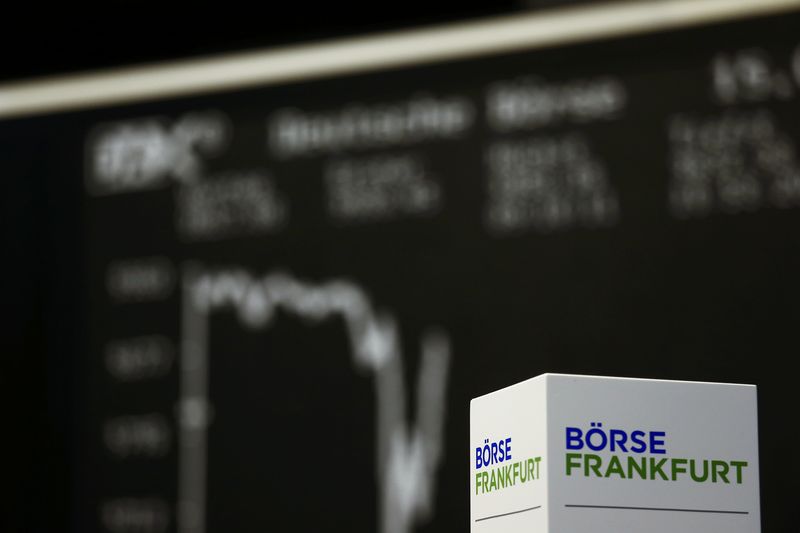This post was originally published on this site
https://i-invdn-com.akamaized.net/news/LYNXMPEB5F0VV_M.jpg
Investing.com – European stock markets are seen opening mixed Wednesday, as investors digest the news that President Donald Trump has ended negotiations over a new coronavirus aid package.
At 2:05 AM ET (0605 GMT), the DAX futures contract in Germany traded 0.9% higher, CAC 40 futures in France fell 0.2% and the FTSE 100 futures contract in the U.K. was flat.
President Donald Trump ended talks on Tuesday with Democrats on a new stimulus package for his pandemic-hit country, tweeting that after he wins the presidential election in November “we will pass a major Stimulus Bill that focuses on hardworking Americans and Small Business.”
While this news hit Wall Street hard late Tuesday, European markets appear to be more sanguine in their reaction, taking in that Trump is still looking for a stimulus package if he wins in November.
“There are a couple of ways we still get stimulus,” since both contenders are promising it., said ING’s chief economist in Asia, Rob Carnell. “But none of them occur before the election now.”
“One way or another we’re going to get some stimulus, it’s just we’re not going to get it now – so we’ll tread water for a bit.”
Earlier Tuesday, Federal Reserve Chair Jerome Powell called once more for additional fiscal support from the government, warning of the risks if authorities did too little to support the economic rebound.
Meanwhile, the total coronavirus cases approaches 39 million globally, with parts of Europe still suffering badly from a second wave of the virus, despite signs of the infection curve flattening again in countries such as Spain and Italy.
This fresh bout of Covid-19 risks delaying the euro zone’s economic recovery, European Central Bank President Christine Lagarde said on Tuesday.
“We now fear that the containment measures that have to be taken by authorities will have an impact on this recovery, so instead of that V shape that we all long for and hope for, we fear that it might have that second arm of the V a little bit more shaky,” she said.
The latest German industrial production release put this into perspective, falling 0.2% in August compared with the expected 1.5% gain.
Oil prices slumped Wednesday, weighed by the reduced likelihood of a new coronavirus relief package as well as a larger-than-expected build in crude oil supplies.
The American Petroleum Institute reported a build in U.S. oil inventories of 951,000 barrels last week, compared with the 831,000-barrel draw expected, raising doubts about the recovery of demand in the country, the largest consumer of oil in the world.
Investors now await data from the U.S. Energy Information Administration, due later in the day.
U.S. crude futures traded 1.4% lower at $40.10 a barrel, while the international benchmark Brent contract fell 1.2% to $42.16.
Elsewhere, gold futures fell 0.9% to $1,891.40/oz, while EUR/USD traded 0.1% higher at 1.1738.

